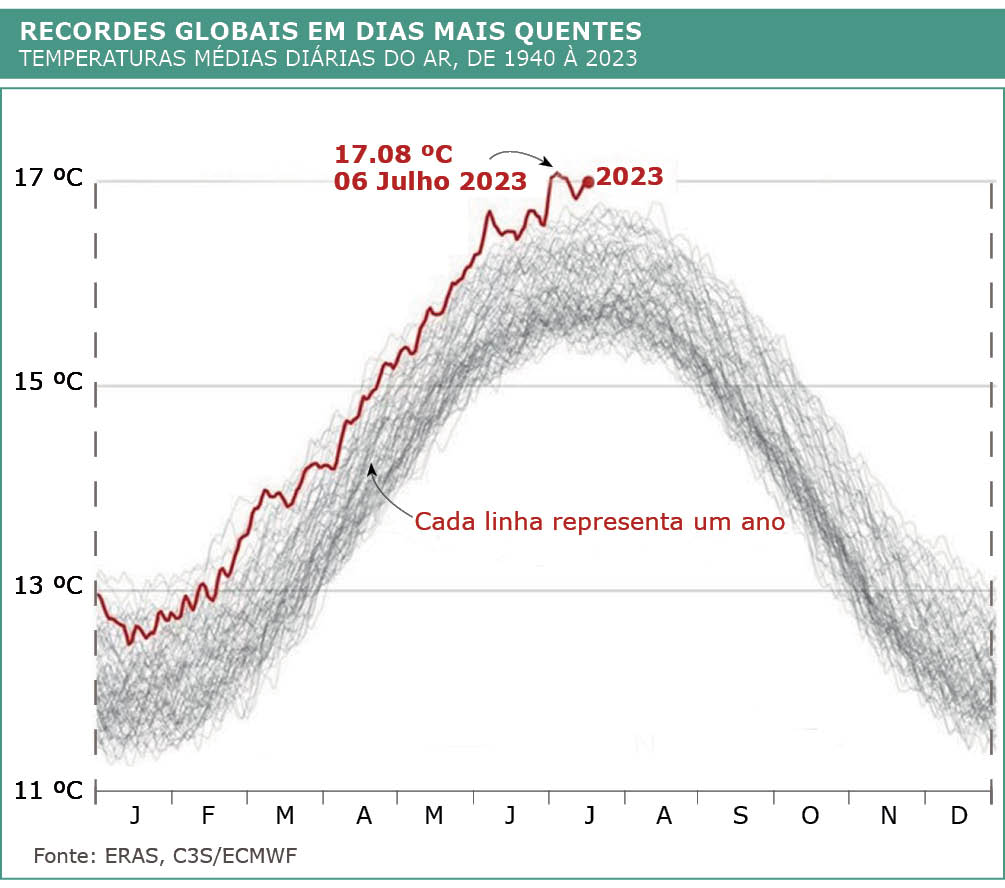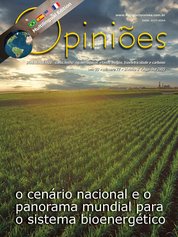Luiz Carlos Corrêa Carvalho, Caio
President of the Brazilian Association of Agribusiness and Director of Canaplan
OpAA77
The importance of the biofuels
“Energy is what tensions the bow;
decision is what releases the arrow.”
Sun Tzu
Since the pandemic that started in 2020, followed by the war between Russia and Ukraine in the midst of a cold war between the United States and China, the world has been experiencing a complex situation. This is the basis of the difficulties in designing scenarios for the energy industries.
The vast majority of countries are signatories to the Paris Agreement on decarbonization , somehow “stuck” under the current situation. A more applied R&D strategy building phase can be seen, with laws supporting the actions of countries such as the United States (IRA) and the European Union (Green Agreement), among others, while the vast majority of countries await the way to come.
This finding is related to the logic of the development process and the leading countries on the one hand and their followers or former colonies on the other. This can be seen in agriculture, where the vast majority of countries have only adapted the technology developed by the temperate world of the northern hemisphere to their reality.
In this sense, Brazil's agribusiness was very different from the 1970s onwards. A positive wave brought private investment and public policy supporting programs to modernize crops and Research and Development in which, on the public side, it was brilliantly created Embrapa and its innovative model. Among the good news came the wave called Proálcool, focused on replacing gasoline with ethanol, later followed by biodiesel, bioelectricity and, today, with the use of by-products from industries, biogas and biomethane.
Producing on a large scale, biofuels strongly marked the Brazilian private capacity to create and manage (public and private) supply and stimulate demand. which, in addition to replacing imports (1970s), responded quickly to the reduction of local pollution and carbon dioxide emissions, with millions of jobs in a long production chain, which added to the automobile industry, electricity and, more recently, that of biogas and biomethane (reducing diesel consumption), as mentioned above.
A series of climate records of temperature, ocean heat and Antarctic sea ice have alarmed some scientists who say its speed and timing are unprecedented. “I am not aware of a similar period when all parts of the climate system were in abnormal or record territory,” says Thomas Smith, an environmental geographer at the London School of Economics. In the highlighted graph are four climate records broken so far this summer of 2023, the hottest day on record, the hottest June on record globally, extreme marine heat waves, record Antarctic sea ice.
Any scenario in the world today considers at least 3 fundamental factors to design perspectives: climate change and decarbonization efforts , food and energy insecurity.
International data show a drop in global investments in new oil wells or in shale oil, which in the context of crisis and lower growth have not yet been felt so much. On the other hand, investments continue in the world in mineral coal (relapse justified by the current energy insecurity) and in nuclear energy, at the same time that wind and solar energy become competitive.
In a world of growing energy demand, even in the crisis, and with strong commitments to reduce emissions such as China and India, the news has been interesting. In the rich world, with plans and few actions, and cases of uncomfortable lack of solutions, in addition to improving energy efficiency and unilateral attempts at global (European Union) regulation, what is new is the funneled trend in the search for green hydrogen.
This is the clearest scenario in the “fog” that limits vision, which for Brazil brings positive opportunities to its agriculture, clearly due to its competitive capacity, its infrastructure of fueling stations and the public-private actions developed since the 1940s, pressured by World War II and gasoline shortages.
Biomass is the great energy vector in the tropical world, combined with the national development of the mixture of renewable fossil fuels, with the advance of flex-fuel engines and hybrid models (with electric motors together with combustion ones), in the logic of having, for example, ethanol as a true bunch of hydrogens! While the country approved its federal law on biofuels, RenovaBio , there has been an important adaptation of policies in this line by India, extremely relevant to the dissemination of the process in the Southern world.
Through the government program “Fuel of the Future”, the coordinates for the development platform of the fuel cell were elaborated, as a goal of using hydrogen on a world scale.
Biodiesel, in the chains of legumes, palm trees and animal tallow, would replace diesel, also supported by by-products from oil refineries.
This Brazilian scenario already has the enormous advantage of carrying out almost 50% of renewable energy consumption in its energy matrix, and over 85% in its electrical matrix!
The scenario of the sugar-energy sector is, in fact, of great relevance and opportunity. There are important investments in production, such as sugarcane-corn integration; second-generation ethanol, via bagasse and straw cellulose; in the production of biogas and biomethane, in addition to bioelectricity; there is an ancient integration of cane and soy as a leguminous source of biodiesel and proteins; there is an effective effort to recover sugarcane agro-industrial productivity, the basis for the process of competitive capacity in the production chain.
All paths, in the global trend, emphasize the focus on the development of the bioeconomy, with high competitiveness, including total factor productivity and the sustainability of production processes. This is a search that greatly values Brazil and its tropical agro developed for its tropical conditions.
Looking at the demand side, we have not only the road mode, where it all started, but also the markets for sustainable aviation biofuels and the markets for marine biofuels, both with high consumption and, therefore, with carbon dioxide emissions at be mitigated.
The economic, environmental and social logic of the sugar-energy business is all based on agro-industrial productivity, full use of biomass, valuing the positive externalities of its products compared to those it replaces, adding value in integration with other cultures and technological development.
This scenario, like all those that seek to anticipate the future, depends on a solid public-private relationship , in an environment of profound changes. This is a complex, political and undefined variable in a country with leadership difficulties that unite objectives in this dimension. It is essential, in this scenario, to be proactive as a country, in matters that may hinder the positive narrative of this bioeconomy process , such as the fight against illegal deforestation and, a position of Brazil before the World Trade Organization and the Organization for Cooperation and Development Economical. It is important to have Trade Agreements and be included in the evolution of other emerging countries.
A recent example of this was the blockade, by several countries led by Saudi Arabia, for the nations that make up the G20 to reduce the use of fossil fuels. That kind of pressure will continue at the next COP28 meeting in the UAE.





